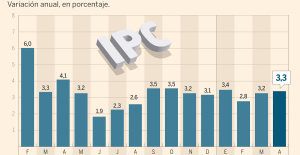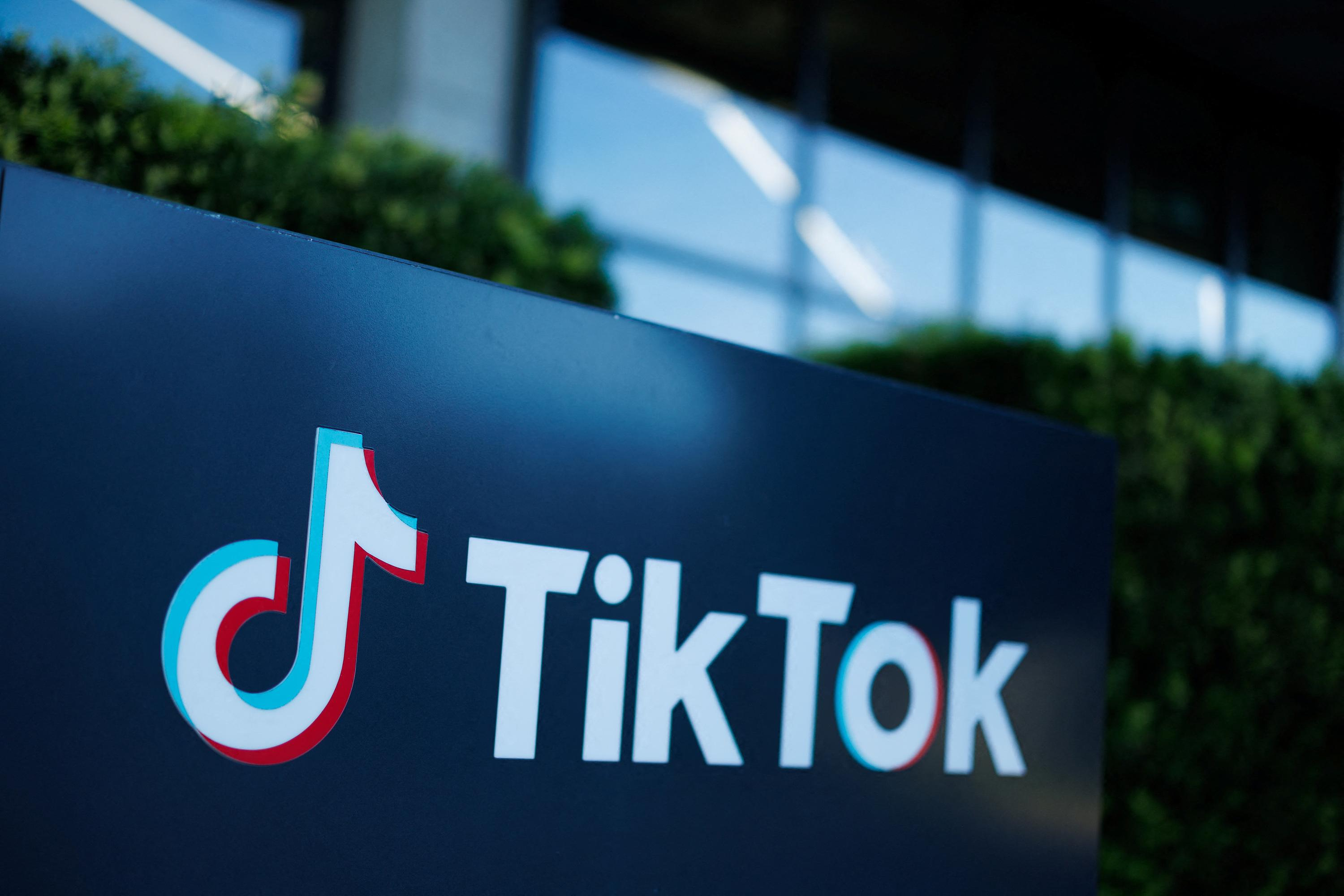Will TikTok be banned in the US soon? The American House of Representatives adopted a bill on Wednesday which provides for its ban in the United States if the social network does not cut ties with its parent company, ByteDance, and more broadly with China. This is a major development for the platform, which did not seem threatened until a few days ago, even if the outcome of the upcoming vote in the Senate remains uncertain. TikTok has been in the crosshairs of American authorities for several months, with many officials believing that the short and entertaining video platform allows Beijing to spy on and manipulate its 170 million users in the United States. The company has repeatedly denied having transmitted information to the Chinese authorities and assured that it would refuse any possible request in this regard.
The text of the law, adopted by a large majority of 352 votes out of 432 elected officials, “does not ban TikTok,” argued the leader of the Democrats in the House of Representatives, Hakeem Jeffries, who voted in favor of the bill. proposal. “It aims to resolve legitimate questions of national security and data protection linked to the Chinese Communist Party’s relationship with a social network,” he explained in a press release. “Allowing TikTok to continue to operate in the United States while under the control of the Chinese Communist Party is simply unacceptable,” commented former Republican Vice President Mike Pence in a statement.
Ahead of the vote, China had indicated that a ban would undermine “the confidence of international investors” and would amount, for the world's leading power, to “shooting itself in the foot”, according to a diplomatic spokesperson. Chinese, castigating the “intimidations” against TikTok. The bill's fate is uncertain in the Senate, where high-profile figures oppose such a sweeping measure against a hugely popular app.
US President Joe Biden said that if passed in the Senate, he would sign into law the bill, known officially as the Protecting Americans from Foreign Adversary Controlled Applications Act. foreign adversaries"). The proposed law would require ByteDance, TikTok's parent company, to sell the app within 180 days or it would be barred from Apple and Google's app stores in the United States. It would also give the US president the power to designate other apps as a threat to national security if they are controlled by a country considered hostile to the United States.
Several states and the federal government have banned the app's use on government officials' official devices, citing national security risks. Washington's renewed offensive against TikTok surprised the company, according to the Wall Street Journal. However, TikTok managers were reassured by the arrival last month on the platform of Joe Biden as part of his campaign for a second term.
TikTok CEO Shou Zi Chew is in Washington, where he is trying to build support to block the bill. “This latest legislation, passed at unprecedented speed without even the benefit of a public hearing, poses serious constitutional problems,” Michael Beckerman, TikTok vice president of public policy, wrote in a letter to advocates. of the bill of which AFP has taken note.
Former US President Donald Trump (2017-2021) reversed course by saying on Monday that he was opposed to a ban, mainly because it would strengthen Meta, the owner of Instagram and Facebook, which he called of “enemy of the people”. In 2020, the real estate developer, then president of the United States, attempted to wrest control of TikTok from ByteDance before being prevented from doing so by the American courts. Donald Trump has refuted accusations that he changed his tune because a major investor in TikTok, Jeff Yass, had threatened to no longer contribute to the financing of Republican electoral campaigns.
Other attempts to ban TikTok have also failed, with a bill proposed a year ago failing to succeed, primarily due to concerns over free speech. As for the current proposal, “it is too general a text, which will not withstand the examination of the first amendment” to the American Constitution, which guarantees freedom of expression, reacted the elected Democrat in the House Ro Khanna. A law passed in May by the state of Montana (northwest) to ban the platform was suspended by a federal court in November on the grounds that it violated constitutional rights to freedom of expression. “The other problem is that a lot of people make their living with this platform” in the United States, added Ro Khanna to journalists.

 B:SM will break its investment record this year with 62 million euros
B:SM will break its investment record this year with 62 million euros War in Ukraine: when kyiv attacks Russia with inflatable balloons loaded with explosives
War in Ukraine: when kyiv attacks Russia with inflatable balloons loaded with explosives United States: divided on the question of presidential immunity, the Supreme Court offers respite to Trump
United States: divided on the question of presidential immunity, the Supreme Court offers respite to Trump Maurizio Molinari: “the Scurati affair, a European injury”
Maurizio Molinari: “the Scurati affair, a European injury” Inflation rises to 3.3% in April and core inflation moderates to 2.9%
Inflation rises to 3.3% in April and core inflation moderates to 2.9% Pedro Sánchez announces that he continues "with more strength" as president of the Government
Pedro Sánchez announces that he continues "with more strength" as president of the Government Irritable bowel syndrome: the effectiveness of low-carbohydrate diets is confirmed
Irritable bowel syndrome: the effectiveness of low-carbohydrate diets is confirmed Beware of the three main sources of poisoning in children
Beware of the three main sources of poisoning in children Relief at Bercy: Moody’s does not sanction France
Relief at Bercy: Moody’s does not sanction France More than 10 million holders, 100 billion euros: the Retirement Savings Plan is a hit
More than 10 million holders, 100 billion euros: the Retirement Savings Plan is a hit Paris 2024 Olympic Games: the extension of line 14 will open “at the end of June”, confirms Valérie Pécresse
Paris 2024 Olympic Games: the extension of line 14 will open “at the end of June”, confirms Valérie Pécresse Failing ventilators: Philips to pay $1.1 billion after complaints in the United States
Failing ventilators: Philips to pay $1.1 billion after complaints in the United States The Cannes Film Festival welcomes Omar Sy, Eva Green and Kore-Eda to its jury
The Cannes Film Festival welcomes Omar Sy, Eva Green and Kore-Eda to its jury Prisoner in Israel, a Palestinian receives the International Prize for Arab Fiction
Prisoner in Israel, a Palestinian receives the International Prize for Arab Fiction Harvey Weinstein, the former American producer hospitalized in New York
Harvey Weinstein, the former American producer hospitalized in New York New success for Zendaya, tops the North American box office with Challengers
New success for Zendaya, tops the North American box office with Challengers Skoda Kodiaq 2024: a 'beast' plug-in hybrid SUV
Skoda Kodiaq 2024: a 'beast' plug-in hybrid SUV Tesla launches a new Model Y with 600 km of autonomy at a "more accessible price"
Tesla launches a new Model Y with 600 km of autonomy at a "more accessible price" The 10 best-selling cars in March 2024 in Spain: sales fall due to Easter
The 10 best-selling cars in March 2024 in Spain: sales fall due to Easter A private jet company buys more than 100 flying cars
A private jet company buys more than 100 flying cars This is how housing prices have changed in Spain in the last decade
This is how housing prices have changed in Spain in the last decade The home mortgage firm drops 10% in January and interest soars to 3.46%
The home mortgage firm drops 10% in January and interest soars to 3.46% The jewel of the Rocío de Nagüeles urbanization: a dream villa in Marbella
The jewel of the Rocío de Nagüeles urbanization: a dream villa in Marbella Rental prices grow by 7.3% in February: where does it go up and where does it go down?
Rental prices grow by 7.3% in February: where does it go up and where does it go down? Europeans: a senior official on the National Rally list
Europeans: a senior official on the National Rally list Blockade of Sciences Po: the right denounces a “drift”, the government charges the rebels
Blockade of Sciences Po: the right denounces a “drift”, the government charges the rebels Even on a mission for NATO, the Charles-de-Gaulle remains under French control, Lecornu responds to Mélenchon
Even on a mission for NATO, the Charles-de-Gaulle remains under French control, Lecornu responds to Mélenchon “Deadly Europe”, “economic decline”, immigration… What to remember from Emmanuel Macron’s speech at the Sorbonne
“Deadly Europe”, “economic decline”, immigration… What to remember from Emmanuel Macron’s speech at the Sorbonne These French cities that will boycott the World Cup in Qatar
These French cities that will boycott the World Cup in Qatar NBA: young Thunder coach Mark Daigneault named coach of the year
NBA: young Thunder coach Mark Daigneault named coach of the year Athletics: Noah Lyles in legs in Bermuda
Athletics: Noah Lyles in legs in Bermuda Serie A: Dumfries celebrates Inter Milan title with humiliating sign towards Hernandez
Serie A: Dumfries celebrates Inter Milan title with humiliating sign towards Hernandez Tennis: no pity for Sorribes, Swiatek is in the quarterfinals in Madrid
Tennis: no pity for Sorribes, Swiatek is in the quarterfinals in Madrid

















